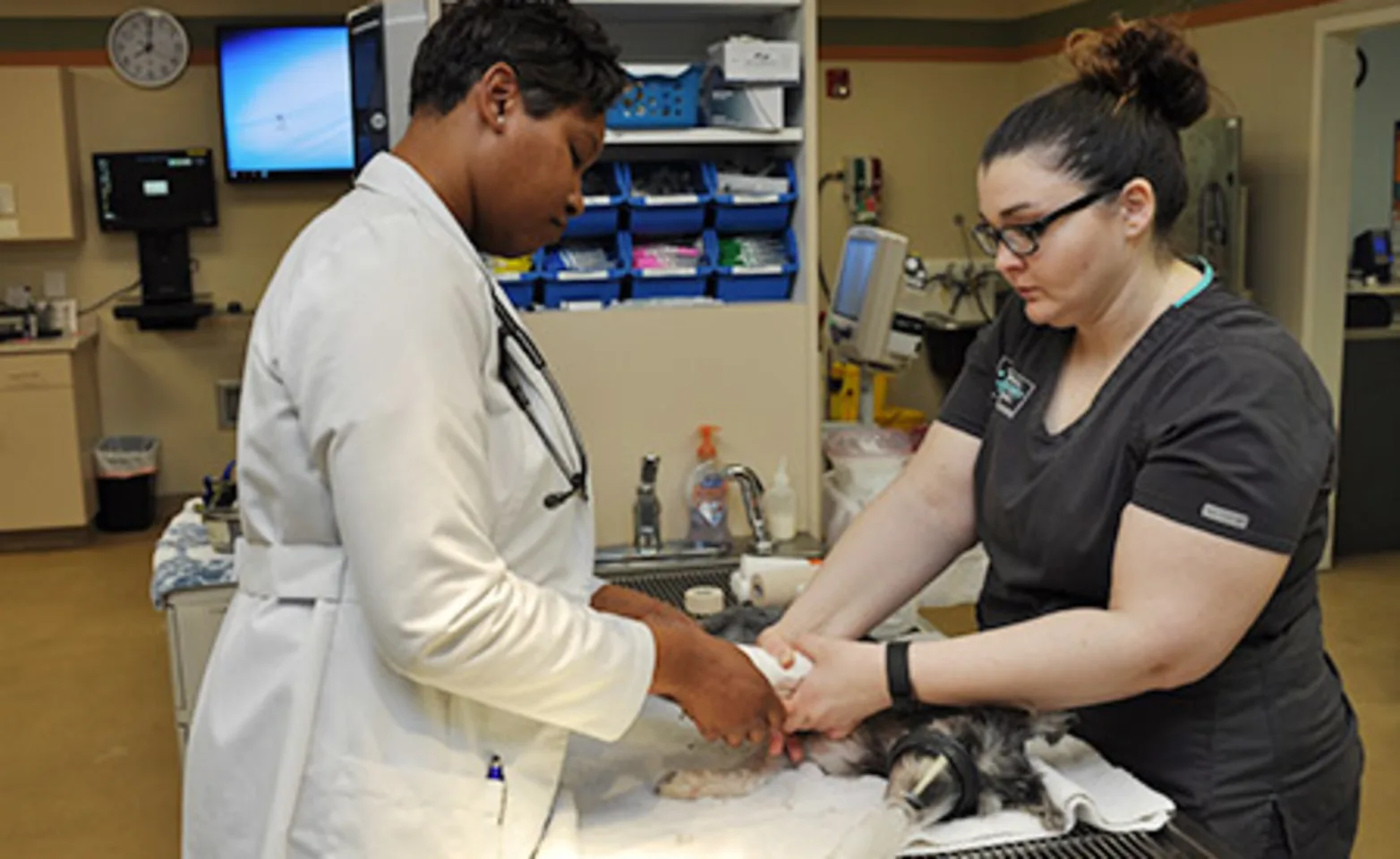North Alabama Veterinary Emergency & Specialty

Common Pet Emergencies

What To Look Out For
If your pet is sick, gets injured, or exhibits any of these symptoms outside of your family veterinarian’s regular office hours, please call us or come immediately to North Alabama Veterinary ER + Specialty. No appointment is necessary and we are available 24/7.
Common Pet Emergencies & Symptoms
Difficulty breathing
Heavy bleeding
Gaping wounds
Bleeding that does not stop from any part of the body
Bloated, distended, swollen, or painful abdomen
Major trauma – falls, hit by a car, large wounds, broken bones
Lacerations, bite wounds, and penetrating wounds anywhere (but especially in the chest or abdomen)
Collapse/loss of consciousness
Paralysis
Ingestion of poison or foreign material
Prolonged vomiting or diarrhea
Seizure activity
Staggering, stumbling, head-tilted, sudden blindness
Lameness or non-weight bearing on any limb
Inflammation, swelling, or other irritation to the eye(s)
Severe hives or severe itching
Inability to urinate or defecate
Inability to deliver puppies or kittens
Loss of balance or consciousness
Pain
Rapid heartbeat or breathing rate
Dilated pupils
Vomiting or diarrhea with blood or violent episodes
Other conditions recognized as an emergency
Breathing Difficulty
Labored breathing and/or pale or blue gums or tongue may indicate heart failure, lung disease, internal bleeding, or major chemical imbalances.
Serious Bleeding
For heavy bleeding, apply direct pressure to the wound, seek help immediately.
Major Trauma
If your pet has fallen, been hit by a car, or has suffered multiple wounds from an unknown source, you should seek professional help immediately, even if your pet is acting OK.
Lacerations and Bite Wounds
Wounds that break the skin are contaminated and can become infected. Many wounds that seem minor to the naked eye – a small puncture or bite wound – can often have deeper, more serious injuries below the skin’s surface.
Collapse or Loss of Consciousness
Illness or injury may make a pet too weak to stand. Neurological problems can prevent normal movement and lead to greater injury if your pet tries to walk.
Poisoning
If you know or suspect this, call our office immediately for professional direction to deal with this very serious problem quickly!
Prolonged Vomiting or Diarrhea
Many serious illnesses begin with vomiting and/or diarrhea. Multiple episodes of vomiting and/or diarrhea can lead to severe dehydration and shock.
Infections
If your pet develops an infected wound or abscess, or if they suddenly get worse while on medication for an infection, seek professional help immediately. Infection can spread rapidly and lead to death if not treated properly.
Difficulty Urinating
Your pet may appear to be straining due to constipation, but it could be more serious. Frequent attempts to urinate that don’t produce a normal urine flow could indicate infection or obstruction – especially in male cats! This can lead to uremic poisoning and death.
Eye Problems
Redness, excessive tearing, pain, pawing at the eyes, squinting, or eyelid spasms suggest an acute problem. The symptoms can intensify if not treated.
